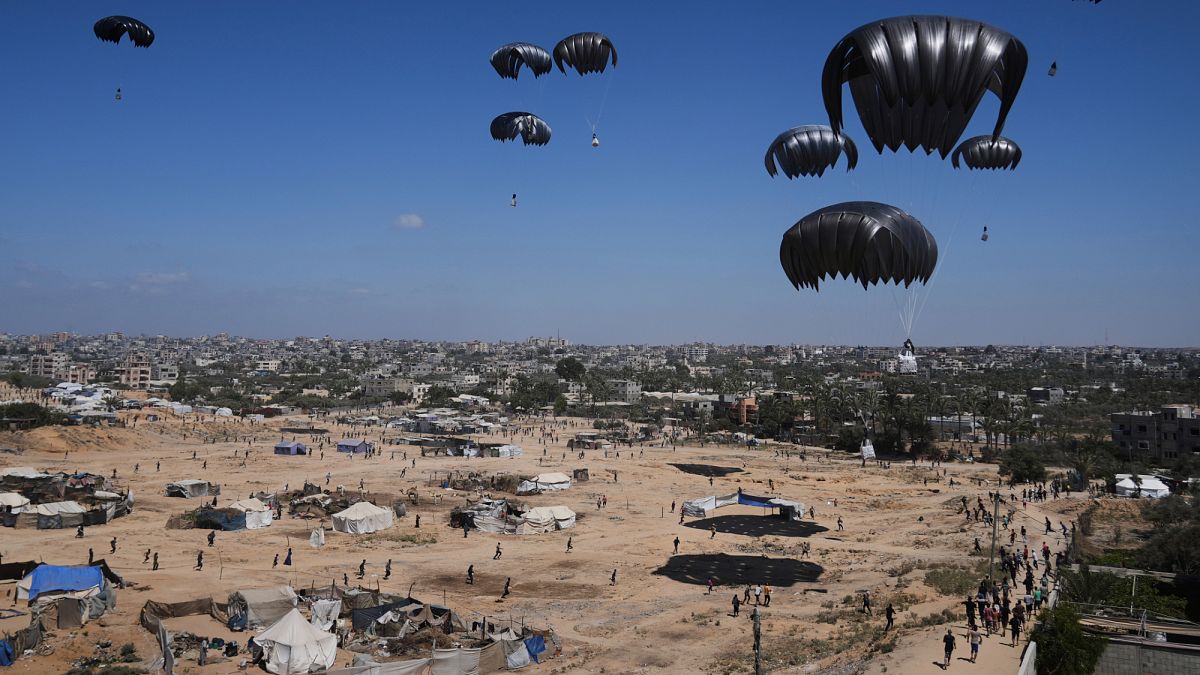

In a world experiencing complex geopolitical tensions, various regions are navigating a delicate balance between conflict and humanitarian concerns. Recent developments in Gaza, Ukraine, and diplomatic exchanges have underscored the challenges facing global peace efforts.
In Gaza, severe humanitarian challenges continue as access to essential food supplies remains perilous. Recent reports indicate a tragic loss of life, with over a thousand Palestinians losing their lives since late May while attempting to secure food. The UN has highlighted the dire situation, emphasizing the need for urgent international attention and intervention. A recent aid delivery attempt resulted in tragic outcomes, with Israeli military engagements leading to casualties at distribution sites. Despite these challenges, humanitarian efforts persist, with aid drops continuing as the pressing need for life-sustaining resources grows.
Simultaneously, the Israeli-Palestinian conflict remains a poignant issue, drawing international criticism and diplomatic responses. Australian Foreign Affairs Minister Penny Wong has openly criticized Israel’s recent actions in Gaza. During a private meeting, she called for adherence to international laws and stressed the necessity of ensuring food supply to Palestinian communities. This diplomatic exchange underscores a global call to prioritize humanitarian considerations amid ongoing conflicts.
In Ukraine, escalating military activities have garnered international concern. Recent drone strikes targeting Russian facilities denote a shift in conflict dynamics, with emerging technologies influencing strategic military engagements. Ukraine’s own resilience is evident as it strives to protect its sovereignty in the face of ongoing challenges. Yet, the humanitarian toll is significant, with recent attacks resulting in civilian casualties, prompting national mourning and deep international concern.
In the broader geopolitical landscape, tensions between the United States and Russia have seen an uptick. In response to warning signals from former Russian President Dmitry Medvedev, President Trump has ordered the strategic movement of nuclear submarines closer to Russian borders. This move emphasizes the delicate nature of global diplomacy in maintaining peace and preventing escalation.
Parallelly, in the Tigray region of Ethiopia, a different yet equally pressing crisis unfolds. A recent report by Physicians for Human Rights has unveiled shocking accounts of systematic sexual violence, further complicating the already volatile situation in the region. International human rights organizations urge swift action to address these crimes against humanity and ensure justice for the victims.
It’s within this multifaceted backdrop that the international community must navigate. Each crisis, while unique, reflects common themes of human resilience, the pursuit of peace, and the importance of safeguarding human rights. In this intricate dance of diplomacy, humanitarian aid, and conflict, the global call remains clear: collective action towards a more peaceful and just world.
Source: {link}
